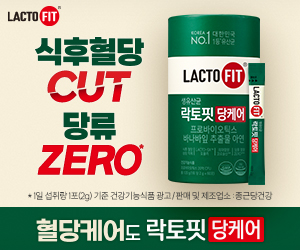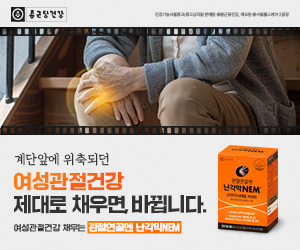Combination with INLYTA(R) in Advanced Renal Cell Carcinoma
-- Second Breakthrough Therapy Designation for avelumab in hard-to-treat cancer
-- Renal cell carcinoma, the most common form of kidney cancer, has a poor prognosis in advanced stage[1],[2]
-- Javelin Renal clinical development program is ongoing, including Phase III first-line study
(DARMSTADT, Germany and NEW YORK, December 21, 2017 PRNewswire=연합뉴스) Merck and Pfizer Inc. (NYSE: PFE) today announced that the US Food and Drug Administration (FDA) has granted Breakthrough Therapy Designation for avelumab in combination with INLYTA(R) (axitinib)* for treatment-naive patients with advanced renal cell carcinoma (RCC). Breakthrough Therapy Designation is designed to accelerate the development and review of potential medicines for serious conditions, and preliminary clinical evidence indicates that the therapy may demonstrate a substantial improvement over currently available therapies on one or more clinically significant endpoints. This is the second Breakthrough Therapy Designation granted to avelumab.
"A combination approach with an immunotherapy, whose activity may complement existing agents such as INLYTA, has the potential to improve outcomes for patients with advanced renal cancer - a disease where the five-year survival rate remains low," said Chris Boshoff, M.D., Ph.D., Senior Vice President and Head of Immuno-Oncology, Early Development and Translational Oncology, Pfizer Global Product Development. "Pfizer's expertise in developing treatments for advanced RCC is a distinct advantage in tackling this tumor type, and we look forward to the completion of our Phase III study combining avelumab with INLYTA, which we're expecting at the end of next year."
"This announcement reinforces the need for innovative first-line treatments for advanced RCC and our promise to advancing care for these patients," said Luciano Rossetti, M.D., Global Head of Research & Development at the Biopharma business of Merck. "The second Breakthrough Therapy Designation by the FDA in another hard-to-treat cancer underlines our focus on challenging tumor types."
RCC is the most common form of kidney cancer, with an estimated 57,500 new cases diagnosed in the US in 2017.[1],[3] This disease is serious and life-threatening, and approximately 20-30% of patients are first diagnosed at an advanced or metastatic stage.[4]
The Breakthrough Therapy Designation is based on the preliminary evaluation of clinical data from JAVELIN Renal 100, a global Phase Ib study assessing the safety and efficacy of avelumab in combination with INLYTA for the treatment of treatment-naive patients with advanced RCC. Updated results from this Phase Ib study were presented at the 2017 American Society of Clinical Oncology (ASCO) Annual Meeting. The FDA previously granted avelumab Breakthrough Therapy Designation for the treatment of patients with metastatic Merkel cell carcinoma (mMCC) whose disease has progressed after at least one previous chemotherapy regimen.
The clinical development program for avelumab, known as JAVELIN, involves at least 30 clinical programs and over 7,000 patients evaluated across more than 15 different tumor types. This includes JAVELIN Renal 101, a randomized, Phase III, open-label, multicenter trial investigating avelumab in combination with INLYTA versus sunitinib as a first-line treatment option for advanced RCC, which recently completed recruitment. In addition to RCC, cancer studies in the JAVELIN program include non-small cell lung cancer, breast cancer, head and neck cancer, Hodgkin's lymphoma, melanoma, mesothelioma, MCC, ovarian cancer, gastric/gastroesophageal junction cancer, and urothelial carcinoma (UC).
*Avelumab is under clinical investigation for advanced renal cell carcinoma and has not been demonstrated to be safe and effective for this indication. There is no guarantee that avelumab will be approved for advanced renal cell carcinoma by any health authority worldwide. INLYTA is under clinical investigation for this use in combination with avelumab. In the US, INLYTA is approved as monotherapy for the treatment of advanced RCC after failure of one prior systemic therapy.
About the FDA Designation
Breakthrough Therapy Designation is designed to expedite the development and review of drugs which are intended to treat a serious condition, and preliminary clinical evidence indicates that the drug may demonstrate substantial improvement over available therapy on a clinically significant endpoint(s). The FDA's granting of the Breakthrough Therapy Designation for metastatic RCC does not alter the standard regulatory requirement to establish the safety and effectiveness of a drug through adequate and well-controlled studies to support approval.
About Renal Cell Carcinoma (RCC)
RCC is the most common form of kidney cancer, accounting for about 2-3% of all cancers in adults.[1],[5] The most common type of RCC is clear cell carcinoma, accounting for approximately 70% of all cases.[3] In 2012, there were approximately 304,000 new cases of RCC diagnosed worldwide, with an estimated 57,500 cases in the US alone in 2017.[3],[4],[6] Incidence varies substantially worldwide with generally higher rates seen in Eastern Asia, North America and Central/Eastern Europe.[7] The five-year overall survival rate for patients with distant metastatic RCC is approximately 12%.[2]
About JAVELIN Renal 100
JAVELIN Renal 100 is a Phase Ib, open-label, multicenter, multiple-dose study investigating avelumab in combination with INLYTA(R) (axitinib), a tyrosine kinase inhibitor from Pfizer, for the treatment of treatment-naive patients with advanced RCC. The study enrolled 55 patients from participating sites in the US, United Kingdom and Japan.
About Avelumab
Avelumab is a human anti-programmed death ligand-1 (PD-L1) antibody. Avelumab has been shown in preclinical models to engage both the adaptive and innate immune functions. By blocking the interaction of PD-L1 with PD-1 receptors, avelumab has been shown to release the suppression of the T cell-mediated antitumor immune response in preclinical models.[8]-[10] Avelumab has also been shown to induce NK cell-mediated direct tumor cell lysis via antibody-dependent cell-mediated cytotoxicity (ADCC) in vitro.[10]-[12] In November 2014, Merck and Pfizer announced a strategic alliance to co-develop and co-commercialize avelumab.
Approved Indications in the US
The FDA granted accelerated approval for avelumab (BAVENCIO(R)) for the treatment of (i) adults and pediatric patients 12 years and older with metastatic Merkel cell carcinoma (mMCC) and (ii) patients with locally advanced or metastatic urothelial carcinoma (UC) who have disease progression during or following platinum-containing chemotherapy, or have disease progression within 12 months of neoadjuvant or adjuvant treatment with platinum-containing chemotherapy. These indications are approved under accelerated approval based on tumor response rate and duration of response. Continued approval for these indications may be contingent upon verification and description of clinical benefit in confirmatory trials.
Selected Important Safety Information from the US FDA Approved Label
The warnings and precautions for BAVENCIO include immune-mediated adverse reactions (such as pneumonitis, hepatitis, colitis, endocrinopathies, nephritis and renal dysfunction and other adverse reactions), infusion-related reactions and embryo-fetal toxicity.
Common adverse reactions (reported in at least 20% of patients) in patients treated with BAVENCIO for mMCC and patients with locally advanced or metastatic UC include fatigue, musculoskeletal pain, diarrhea, nausea, infusion-related reaction, peripheral edema, decreased appetite/hypophagia, urinary tract infection and rash.
About INLYTA(R) (axitinib)
INLYTA is an oral therapy that is designed to inhibit tyrosine kinases, including vascular endothelial growth factor (VEGF) receptors 1, 2 and 3; these receptors can influence tumor growth, vascular angiogenesis and progression of cancer (the spread of tumors). In the U.S., INLYTA is approved for the treatment of advanced RCC after failure of one prior systemic therapy. INLYTA is also approved by the European Medicines Agency (EMA) for use in the EU in adult patients with advanced RCC after failure of prior treatment with sunitinib or a cytokine.
INLYTA Important Safety Information
Hypertension including hypertensive crisis has been observed. Blood pressure should be well controlled prior to initiating INLYTA. Monitor for hypertension and treat as needed. For persistent hypertension, despite use of antihypertensive medications, reduce the dose. Discontinue INLYTA if hypertension is severe and persistent despite use of antihypertensive therapy and dose reduction of INLYTA, and discontinuation should be considered if there is evidence of hypertensive crisis.
Arterial and venous thrombotic events have been observed and can be fatal. Use with caution in patients who are at increased risk or who have a history of these events.
Hemorrhagic events, including fatal events, have been reported. INLYTA has not been studied in patients with evidence of untreated brain metastasis or recent active gastrointestinal bleeding and should not be used in those patients. If any bleeding requires medical intervention, temporarily interrupt the INLYTA dose.
Cardiac failure has been observed and can be fatal. Monitor for signs or symptoms of cardiac failure throughout treatment with INLYTA. Management of cardiac failure may require permanent discontinuation of INLYTA.
Gastrointestinal perforation and fistula, including death, have occurred. Use with caution in patients at risk for gastrointestinal perforation or fistula. Monitor for symptoms of gastrointestinal perforation or fistula periodically throughout treatment.
Hypothyroidism requiring thyroid hormone replacement has been reported. Monitor thyroid function before initiation of, and periodically throughout, treatment.
No formal studies of the effect of INLYTA on wound healing have been conducted. Stop INLYTA at least 24 hours prior to scheduled surgery.
Reversible Posterior Leukoencephalopathy Syndrome (RPLS) has been observed. If signs or symptoms occur, permanently discontinue treatment.
Monitor for proteinuria before initiation of, and periodically throughout, treatment. For moderate to severe proteinuria, reduce the dose or temporarily interrupt treatment.
Liver enzyme elevation has been observed during treatment with INLYTA. Monitor ALT, AST, and bilirubin before initiation of, and periodically throughout, treatment.
For patients with moderate hepatic impairment, the starting dose should be decreased. INLYTA has not been studied in patients with severe hepatic impairment.
Women of childbearing potential should be advised of potential hazard to the fetus and to avoid becoming pregnant while receiving INLYTA.
Avoid strong CYP3A4/5 inhibitors. If unavoidable, reduce the dose. Grapefruit or grapefruit juice may also increase INLYTA plasma concentrations and should be avoided.
Avoid strong CYP3A4/5 inducers and, if possible, avoid moderate CYP3A4/5 inducers.
The most common (≥20%) adverse events (AEs) occurring in patients receiving INLYTA (all grades, vs sorafenib) were diarrhea (55% vs 53%), hypertension (40% vs 29%), fatigue (39% vs 32%), decreased appetite (34% vs 29%), nausea (32% vs 22%), dysphonia (31% vs 14%), hand-foot syndrome (27% vs 51%), weight decreased (25% vs 21%), vomiting (24% vs 17%), asthenia (21% vs 14%), and constipation (20% vs 20%).
The most common (≥10%) grade 3/4 AEs occurring in patients receiving INLYTA (vs sorafenib) were hypertension (16% vs 11%), diarrhea (11% vs 7%), and fatigue (11% vs 5%).
The most common (≥20%) lab abnormalities occurring in patients receiving INLYTA (all grades, vs sorafenib) included increased creatinine (55% vs 41%), decreased bicarbonate (44% vs 43%), hypocalcemia (39% vs 59%), decreased hemoglobin (35% vs 52%), decreased lymphocytes (absolute) (33% vs 36%), increased ALP (30% vs 34%), hyperglycemia (28% vs 23%), increased lipase (27% vs 46%), increased amylase (25% vs 33%), increased ALT (22% vs 22%), and increased AST (20% vs 25%).
For more information and full Prescribing Information for INLYTA, visit http://www.pfizer.com.
About Merck-Pfizer Alliance
Immuno-oncology is a top priority for Merck and Pfizer. The global strategic alliance between Merck and Pfizer enables the companies to benefit from each other's strengths and capabilities and further explore the therapeutic potential of avelumab, an anti-PD-L1 antibody initially discovered and developed by Merck. The immuno-oncology alliance is jointly developing and commercializing avelumab and advancing Pfizer's PD-1 antibody. The alliance is focused on developing high-priority international clinical programs to investigate avelumab, as a monotherapy, as well as combination regimens, and is striving to find new ways to treat cancer.
All Merck Press Releases are distributed by e-mail at the same time they become available on the Merck Website. Please go to http://www.merckgroup.com/subscribe to register online, change your selection or discontinue this service.
About Merck
Merck is a leading science and technology company in healthcare, life science and performance materials. Around 50,000 employees work to further develop technologies that improve and enhance life - from biopharmaceutical therapies to treat cancer or multiple sclerosis, cutting-edge systems for scientific research and production, to liquid crystals for smartphones and LCD televisions. In 2016, Merck generated sales of € 15.0 billion in 66 countries.
Founded in 1668, Merck is the world's oldest pharmaceutical and chemical company. The founding family remains the majority owner of the publicly listed corporate group. Merck, Darmstadt, Germany holds the global rights to the "Merck" name and brand except in the United States and Canada, where the company operates as EMD Serono, MilliporeSigma and EMD Performance Materials.
About Pfizer: Working together for a healthier world(R)
At Pfizer, we apply science and our global resources to bring therapies to people that extend and significantly improve their lives. We strive to set the standard for quality, safety and value in the discovery, development and manufacture of health care products. Our global portfolio includes medicines and vaccines as well as many of the world's best-known consumer health care products. Every day, Pfizer colleagues work across developed and emerging markets to advance wellness, prevention, treatments and cures that challenge the most feared diseases of our time. Consistent with our responsibility as one of the world's premier innovative biopharmaceutical companies, we collaborate with health care providers, governments and local communities to support and expand access to reliable, affordable health care around the world. For more than 150 years, we have worked to make a difference for all who rely on us. We routinely post information that may be important to investors on our website at http://www.pfizer.com. In addition, to learn more, please visit us on http://www.pfizer.com and follow us on Twitter at @Pfizer and @Pfizer_News, LinkedIn, YouTube and like us on Facebook at Facebook.com/Pfizer.
Pfizer Disclosure Notice
The information contained in this release is as of December 21, 2017. Pfizer assumes no obligation to update forward-looking statements contained in this release as the result of new information or future events or developments.
This release contains forward-looking information about BAVENCIO (avelumab), including a potential indication for avelumab in combination with INLYTA (axitinib) for the treatment of advanced renal cell carcinoma (the "Potential Indication"), the Merck-Pfizer Alliance involving anti-PD-L1 and anti-PD-1 therapies, and clinical development plans, including their potential benefits, that involves substantial risks and uncertainties that could cause actual results to differ materially from those expressed or implied by such statements. Risks and uncertainties include, among other things, uncertainties regarding the commercial success of BAVENCIO; the uncertainties inherent in research and development, including the ability to meet anticipated clinical study commencement and completion dates and regulatory submission dates, as well as the possibility of unfavorable study results, including unfavorable new clinical data and additional analyses of existing clinical data; risks associated with interim data; the risk that clinical trial data are subject to differing interpretations, and, even when we view data as sufficient to support the safety and/or effectiveness of a product candidate, regulatory authorities may not share our views and may require additional data or may deny approval altogether; whether regulatory authorities will be satisfied with the design of and results from our clinical studies; whether and when any drug applications may be filed in any jurisdictions for the Potential Indication or for any other potential indications for BAVENCIO, combination therapies or other product candidates; whether and when regulatory authorities in any jurisdictions where applications may be submitted for the Potential Indication or where applications are pending or may be submitted for BAVENCIO, combination therapies or other product candidates may approve any such applications, which will depend on the assessment by such regulatory authorities of the benefit-risk profile suggested by the totality of the efficacy and safety information submitted; decisions by regulatory authorities regarding labeling and other matters that could affect the availability or commercial potential of BAVENCIO, combination therapies or other product candidates, including the Potential Indication; and competitive developments.
A further description of risks and uncertainties can be found in Pfizer's Annual Report on Form 10-K for the fiscal year ended December 31, 2016, and in its subsequent reports on Form 10-Q, including in the sections thereof captioned "Risk Factors" and "Forward-Looking Information and Factors That May Affect Future Results", as well as in its subsequent reports on Form 8-K, all of which are filed with the U.S. Securities and Exchange Commission and available at http://www.sec.gov and http://www.pfizer.com.
References
1. American Cancer Society. What is kidney cancer? Available from: http://www.cancer.org/cancer/kidneycancer/detailedguide/kidney-cancer-adult-what-iskidney-cancer. Accessed November 2017.
2. National Cancer Institute: SEER Stat Fact Sheets: Kidney and Renal Pelvis. Available from: http://seer.cancer.gov/statfacts/html/kidrp.html. Accessed November 2017.
3. American Cancer Society. What are the key statistics about kidney cancer? Available from: https://www.cancer.org/cancer/kidney-cancer/about/key-statistics.html. Accessed November 2017.
4. Ljungberg B, Campbell S, Cho H. The Epidemiology of Renal Cell Carcinoma. Eur Urol. 2011;60:615-621.
4. Escudier B, et al. Renal cell carcinoma: ESMO Clinical Practice Guidelines for diagnosis, treatment and follow-up. Ann Oncol. 2016;24(5):v58-v68.
6. World Cancer Research Fund International: Kidney Cancer statistics. Available from: http://www.wcrf.org/int/cancer-facts-figures/data-specific-cancers/kidney-cancer-statistics. Accessed November 2017.
7. International Agency for Research on Cancer (IARC)/World Health Organization. GLOBOCAN 2012: Kidney, adults. Available from: http://globocan.iarc.fr/old/bar_-sex_site_prev.asp?selection=10210&title=Kidney&statistic=3&populations=6&window=1&grid=1&color1=5&color1e=&color2=4&color2e=&submit= Execute. Accessed March 2016.
8. Dolan DE, Gupta S. PD-1 pathway inhibitors: changing the landscape of cancer immunotherapy. Cancer Control. 2014;21(3):231-237.
9. Dahan R, Sega E, Engelhardt J, et al. FcγRs modulate the anti-tumor activity of antibodies targeting the PD-1/PD-L1 axis.Cancer Cell. 2015;28(3):285-295.
10. Boyerinas B, Jochems C, Fantini M, et al. Antibody-dependent cellular cytotoxicity activity of a novel anti-PD-L1 antibody avelumab (MSB0010718C) on human tumor cells. Cancer Immunol Res. 2015;3(10):1148-1157.
11. Kohrt HE, Houot R, Marabelle A, et al. Combination strategies to enhance antitumor ADCC. Immunotherapy. 2012;4(5):511-527.
12. Hamilton G, Rath B. Avelumab: combining immune checkpoint inhibition and antibody-dependent cytotoxicity. Expert Opin Biol Ther. 2017;17(4):515-523.
Source: Merck
[편집자 주] 본고는 자료 제공사에서 제공한 것으로, 연합뉴스는 내용에 대해 어떠한 편집도 하지 않았음을 밝혀 드립니다.
(끝)
<저작권자(c) 연합뉴스, 무단 전재-재배포 금지>
관련뉴스















